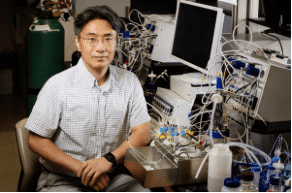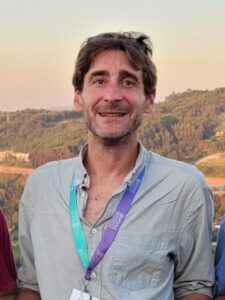In the pursuit of sustainable and economically viable biomanufacturing, the utilization of abundant, renewable, and inexpensive feedstocks for microbial fermentation is crucial. We undertook metabolic engineering approaches to achieve rapid and efficient conversion of non-conventional substrates (cellobiose, lactose, xylose, and acetate), both individually and simultaneously, into high-value products, including food ingredients (tagatose and malic acid), nutraceuticals (carotenoids and vitamin A), and prebiotics (human milk oligosaccharides). Moreover, we developed tailored genetic tools capable of facilitating expedited and facile genetic/genomic modifications to optimize metabolic pathways in non-conventional yeasts (Rhodotorula toruloides and Issatchenkia orientalis). Using these genetic tools, we demonstrated the production of platform chemicals such as lactic acid and triacetic acid lactone (TAL) from lignocellulosic hydrolysates by engineered non-conventional yeast strains. Furthermore, we explored non-conventional strategies, such as division of labor, to leverage the specialized capabilities of multiple microorganisms instead of relying solely on single microorganisms for the conversion of carbon dioxide and lignocellulosic hydrolysates into biofuels and chemicals. We envision that these non-conventional approaches will significantly contribute to sustainable and economically feasible biomanufacturing practices, paving the way for a more environmentally friendly and resource-efficient future.
Short bio
Yong-Su Jin is a professor of Food Microbiology (Department of Food Science and Human Nutrition, Department of Bioengineering, Division of Nutritional Science, Carl R. Woese Institute for Genomic Biology) at University of Illinois at Urbana-Champaign (UIUC) in USA. After PhD at UW-Madison and postdoc at MIT in USA, he started his career as assistant professor at Sungkyunkwan University in South Korea. Then he moved to UIUC as faculty members since 2008.
His research is centered on metabolic engineering of microorganisms (i) to produce biofuels and chemicals from renewable biomass, and (ii) to elicit desirable phenotypes relevant to gut disease prevention and to promote health. Specifically, a synthetic biology research framework-the design-build-test-learn cycle-is used to rapidly identify, characterize, and engineer beneficial genetic perturbations that are responsible for phenotypes of interest, such as enhanced production of biofuels, nutraceuticals, food ingredients, and prebiotics.
Full publication list here
Laboratory of the speaker
Molecular and Systems Biotechnology Lab
Invited by
Young-Kyoung Park, Tristan Rossignol (COSYNUS)




